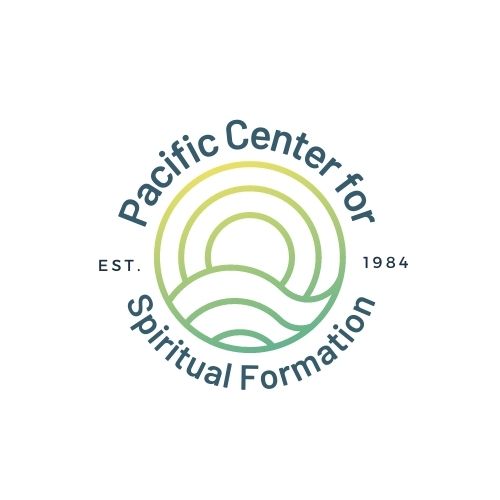
"You must descend from your head to your heart." ~Theophan the Monk
Whether you are just beginning to explore contemplative spirituality or you are a seasoned practitioner, PCSF has something for you. Click on one of the tabs below to learn more.
If you’re new to contemplative spirituality…
…you may be wondering what contemplative spirituality is and what is might mean for you.
Contemplative spirituality is a way of focusing one’s life wholeheartedly (completely) on God through silent prayer, living in love and a moment-to-moment awareness of God’s presence (within and in everyday duties of life), including serving others.
There are many paths that lead to a contemplative stance in the world and to the many practices by which we explore and enhance our contemplative awareness.
The Pacific Center for Spiritual Formation seeks to be a resource for those who are drawn to contemplative spirituality. We hope our limited assortment of persons and opportunities for contemplative practice in community can inform and support your contemplative journey.
We would love to know your story—how you found and have taken your first steps into contemplative awareness and practice. If you would like to share your experience and explore what might be possible in supporting you, click the button below to contact us.
Have more questions?
Ready to begin your contemplative journey? Read on in the next section about opportunities to practice and learn with us.
If you’re ready to grow your contemplative practice…
…PCSF offers multiple opportunities for you to deepen your practice and find spiritual community.
Taster Days:
Taster Days provide an opportunity to engage contemplative experiences with one or more leaders in a relatively brief amount of time. Recently, our Taster Days have been scheduled on Saturday mornings, two or three times a year. These events include the essence and method of a practice, experiencing the practice in silence, and then an opportunity to share.
Quiet Days & Retreats:
In recent years, PCSF has offered 5-hour quiet days (short retreats) on Zoom (including a break for lunch) for Advent (December) and Lent (in the spring), as well as our long-running Buddhist-Christian retreat in person (early summer). Quiet days and retreats incorporate lots of time for silence and reflection, body prayer and movement, the arts, and sharing in community.
Contemplative Practice Groups:
PCSF leads or sponsors regular contemplative practice groups to deepen your practice of contemplative prayer or meditation and to build contemplative community. Currently, PCSF offers two different practice groups.
Spiritual Direction:
Here’s a definition we like from Spiritual Directors International (SDI), written by SDI member Marian Cowan:
“Spiritual direction is a time-honored term for a conversation, ordinarily between two persons, in which one person consults another, more spiritually experienced person about the ways in which God [or however one names the Divine, Holy or Universal] may be touching her or his life, directly or indirectly. In our postmodern age, many people dislike the term ‘spiritual direction’ because it sounds like one person giving directions, or orders, to another. They prefer ‘spiritual companionship,’ ‘tending the holy,’ or some other nomenclature. What we call it doesn’t make any real difference. The reality remains conversations about life in the light of faith… Although spiritual direction has had a burst of new life, it is really quite ancient. Across both the Hebrew and the Christian Scriptures, we find people seeking spiritual counsel. The Queen of Sheba sought out the wisdom of Solomon. Jesus gave us examples in his conversations with Nicodemus, with the woman at the well, in the ongoing formation of Peter and the other disciples. In the early church, people flocked to hermits in the desert for spiritual counsel. Across the centuries we find striking examples in some Irish monks, in some German Benedictine nuns, in Charles de Foucault, Teresa of Avila, John of the Cross, Francis de Sales, and others. Today, spiritual directors come from many traditions … [including Judaism, Sufism, Buddhism and other faiths].“
PCSF offers opportunities to explore spiritual direction with individuals with whom you might resonate.
If you’re interested in leading contemplative offerings…
…we would love to discuss with you how we might support you in your journey.
We can provide various kinds of support as well as leadership opportunities. One easy way to begin leading contemplative offerings is to lead a spiritual practice for one of our Taster Days. Click the button below to fill out a form expressing your interest in leadership.
